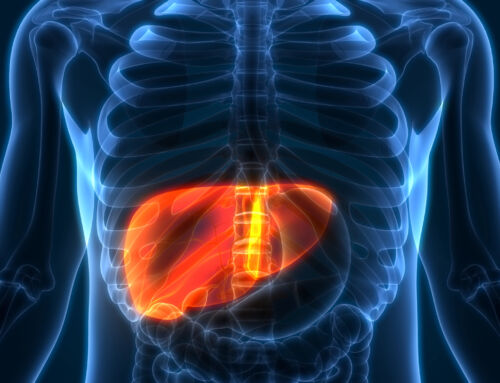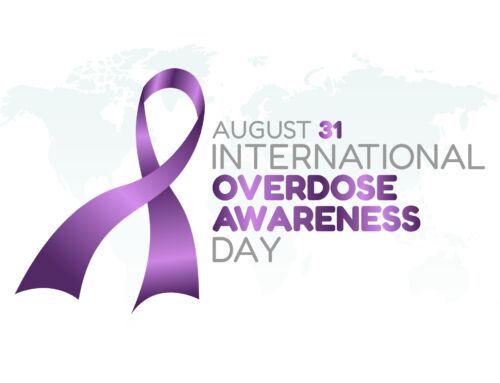Choosing to seek help for substance use disorder is a courageous and transformative decision. For many individuals, inpatient treatment is not feasible but outpatient rehab programs offer a flexible, effective, and supportive environment for recovery. Whether you’re stepping down from a more intensive treatment or starting your journey in an outpatient setting, understanding what to expect can help you make the most of the experience.
What Is Outpatient Rehab?
Outpatient rehab is a form of substance use treatment that provides comprehensive care while allowing individuals to live at home and maintain their regular daily activities. Unlike residential or inpatient rehab, where participants stay in a treatment facility full-time, outpatient treatment offers the flexibility to receive professional support and therapy on a part-time basis. This means you can continue to work, attend school, and fulfill family or personal responsibilities while still actively participating in your recovery journey.
Who Can Benefit from Outpatient Addiction Treatment?
Outpatient rehab is particularly beneficial for professionals, nurses, teachers, first responders, parents, and others who need to balance their recovery with other commitments. It’s designed to fit into your life, rather than requiring you to put everything on hold, making it easier to attend treatment without disrupting your professional or family obligations.
These programs are structured to provide the same level of care and support as inpatient treatment, focusing on the physical, mental, and emotional aspects of addiction. You’ll engage in a variety of therapeutic activities, including individual counseling, group therapy, and educational workshops, all tailored to help you overcome substance use disorder.
Outpatient treatment programs are an excellent option for those who:
- Have a supportive home environment: If you have a stable and encouraging home life, outpatient rehab allows you to stay connected with loved ones while receiving treatment. This can be a significant factor in your recovery success.
- Need to maintain employment or education: For professionals, students, or parents, outpatient rehab provides the necessary treatment without requiring you to take extended leave from work or school.
- Are stepping down from inpatient care: Outpatient programs can serve as a transitional phase for individuals who have completed a more intensive inpatient program and need ongoing support as they reintegrate into daily life.
Outpatient rehab offers a flexible, effective, and accessible path to recovery, particularly for those who need to continue managing other aspects of their lives. It’s a comprehensive approach that empowers you to heal from addiction while maintaining the stability of your home, work, and personal responsibilities.
What To Expect in Outpatient Rehab: A Tailored Treatment Plan
The first step in an outpatient treatment program is a thorough assessment conducted by a team of healthcare professionals. This assessment typically includes:
- Medical Evaluation: A review of your medical history, any co-occurring mental health conditions, and a physical exam to identify any immediate health concerns.
- Psychological Evaluation: An assessment of your mental health, including any symptoms of depression, anxiety, or other conditions that may need to be addressed during treatment.
- Substance Use History: A detailed exploration of your history with substance use, including the types of substances used, duration, and frequency of use.
Based on this assessment, a personalized treatment plan is developed to address your specific needs. This plan is tailored to help you achieve your recovery goals while considering your lifestyle and responsibilities.
The Core Components of Attending Outpatient Addiction Treatment
Outpatient treatment centers typically include a combination of therapies and services designed to support your recovery. These may include:
- Individual Therapy: One-on-one sessions with a licensed therapist help you explore the underlying causes of addiction, develop coping strategies, and work through personal challenges. Cognitive-behavioral therapy (CBT) and other evidence-based approaches are often used to help you change unhealthy thought patterns and behaviors.
- Group Therapy: Group sessions provide a supportive environment where you can connect with others who are facing similar challenges. Sharing experiences, offering support, and learning from others’ journeys can be incredibly empowering and foster a sense of community.
- Family Therapy: Addiction affects not just the individual but also their loved ones. Family therapy sessions aim to heal relationships, improve communication, and educate family members about the recovery process. Involving family in treatment can strengthen your support system and create a more supportive home environment.
- Educational Workshops: Outpatient rehab programs offer educational sessions that cover topics like relapse prevention, stress management, and healthy lifestyle choices. These workshops equip you with the knowledge and skills needed to maintain long-term sobriety.
- Holistic Therapies: Holistic therapies such as mindfulness meditation, yoga, art therapy, music therapy and more are used to complement traditional therapies. These practices can help reduce stress, improve emotional well-being, and enhance your overall recovery experience.
Outpatient Rehab and Medication-Assisted Treatment (MAT)
For individuals struggling with opioid or alcohol dependence, medication-assisted treatment (MAT) may be a key component of outpatient addiction treatment. MAT involves the use of FDA-approved medications, such as methadone, buprenorphine, or naltrexone, in combination with counseling and behavioral therapies. These medications can help reduce cravings, manage withdrawal symptoms, and support long-term recovery.
Your treatment team will work with you to determine if MAT is appropriate for your situation and will closely monitor your progress throughout the program.
Transitioning to Life After Treatment
As you progress through outpatient drug treatment or alcohol treatment, the focus will gradually shift to preparing you for life after treatment. This transition phase is crucial for maintaining your sobriety and building a fulfilling, substance-free life.
- Aftercare Planning: Before completing the program, your treatment team will work with you to develop an aftercare plan. This plan may include continued therapy, participation in support groups, and strategies for handling triggers and cravings.
- Relapse Prevention: Learning to identify and manage triggers is a key component of preventing relapse. Your treatment program will equip you with the tools needed to recognize potential relapse triggers and develop healthy coping mechanisms.
- Ongoing Support: Recovery doesn’t end when the program does. Many outpatient programs offer alumni support groups, ongoing counseling, or follow-up services to help you stay on track.
The Benefits of Outpatient Rehab
Outpatient rehab offers several unique benefits that make it an attractive option for many individuals:
- Flexibility: The ability to receive treatment while maintaining your daily responsibilities is a significant advantage. Outpatient programs are designed to fit into your life, not disrupt it.
- Affordability: Outpatient rehab may be more cost-effective than residential treatment, making it accessible to a broader range of individuals. And you can use insurance benefits – even out-of-network insurance benefits – to offset costs.
- Real-World Application: Because you remain in your home environment during treatment, outpatient rehab allows you to immediately apply what you’ve learned in therapy to real-life situations.
- Privacy and Discretion: Outpatient rehab offers a level of privacy that some individuals may prefer, as it allows you to continue living at home and attending therapy sessions discreetly. This can be particularly important for those who wish to maintain their treatment journey confidentially while staying engaged in their community.
- Gradual Transition: Outpatient rehab can serve as a bridge between intensive inpatient treatment and independent living. It provides a supportive environment where you can gradually transition back into everyday life while still receiving the guidance and support necessary to sustain long-term recovery.
Take A Step Toward Lasting Recovery with Greenbranch Outpatient Treatment
At Greenbranch Recovery in Egg Harbor Township, New Jersey, we understand that every individual’s journey to sobriety is unique, and we’re here to support you every step of the way. Our outpatient rehab programs are designed to offer the flexibility and comprehensive care you need to recover while maintaining your daily responsibilities. Whether you’re a professional needing to balance work with treatment or someone looking for ongoing support after inpatient care, our team is committed to helping you achieve lasting recovery.
Don’t wait to start your journey. Contact Greenbranch Recovery today to learn more about our outpatient treatment options and take the first step toward a healthier, substance-free life. Call 609-622-5101 or you can contact us online. Our compassionate team is ready to guide you through the process, offering personalized care and a strong support network that empowers you to build a brighter future.




